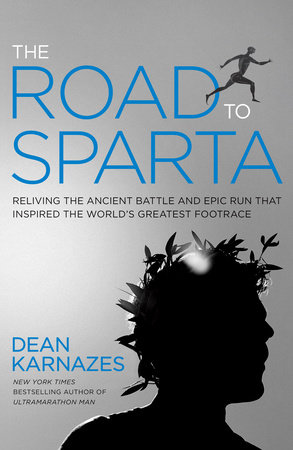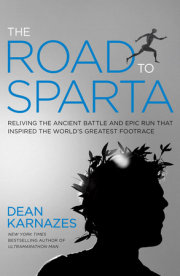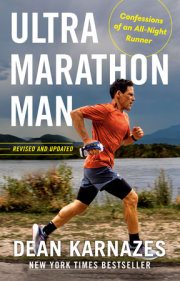1
IMMIGRANT SONG
A hulking figure of a man, both in stature and in character, Gus Gibbs possessed the broad-shouldered physique of a Spartan warrior along with an equally domineering personality to match. Now in his autumn years, Gus was gregarious and spirited, but his life hadn't always been so carefree. Fifty years earlier, at the fresh age of 14, he'd arrived on American shores with 20 bucks in his pocket and not a word of English in his vocabulary. Since adolescence he'd been forced to fend for himself, alone and in a foreign land.
Enterprising and hardworking, Gus followed his instincts across the country, venturing wherever opportunity could be found and eventually settling on the West Coast, in Los Angeles. There, he met a beautiful young lady, Vasiliki, and they fell madly in love. He couldn't stand being without her. One night he appeared outside her bedroom window. "Billy, Billy," he tapped on the pane, "it's me, Gus. Open up."
She heard the rapping and slid the window open. "Gus, what are you doing here?"
"I've come to take your hand in marriage."
"But I can't."
He was puzzled. "Why? Do you not love me?"
"Yes, I love you deeply."
"Then why will you not marry me?"
"Because my oldest sister has yet to marry."
"Oh." Gus scratched his head as she slid the window shut.
He thought about the situation for a second and then moved over to the adjacent window. He tapped on it, and Eugenia's face appeared. Gus waved his hand back and forth several times, "Sorry, sorry." Eugenia was the middle sister.
He moved over one more time and knocked on a third window. Panayota looked out at him.
"Pack your bags," he told her. "We're going to get married."
She did as he asked and then crawled out the window. They eloped to Mexico that night.
Ironically, Panayota's family (or Patricia, as she was known) had emigrated from a region not far from Gus's origins. The two of them got along well together. Eventually, they raised a family of three children.
As the years passed, Gus invested his earnings from the restaurant business into acquiring rental properties, eventually building a portfolio sufficient to provide for his family and live a comfortable life in the flourishing metropolis of LA. A proud man who had come from nothing, it was quite gratifying to him to have created such a stable foundation for himself and his loved ones--the American dream come true.
Yet, despite all that he'd accomplished and everything he'd achieved, Gus remained perpetually restless. An incessant fire burned within the man. To him, it always seemed there was more that could be done; there were greater challenges still to be conquered. He would not permit himself to stop or to slow down, perpetually resisting any temptation to rest. His philosophy was: Show me a man who is content, and I will show you an underachiever. Gus was never quite satisfied with his place in the world. He was constantly striving to do more and to be more, though he wasn't always quite sure how to go about it.
Some of this pent-up ferocity was released through participation in sports and athletics. An avid wrestler, Gus dabbled in the professional arena back in an era when wrestling was a more noble pursuit. Athleticism was important in his ancient culture, and those virtues stuck with him even in America. His opponents used to say that getting in the ring with Gus was like wrestling Hercules. He earned a reputation for being a mighty fighter, fearless, even when taking on opponents twice his size. His colossal chest and huge arms were imposing enough, but his legs, especially his calves, were so shockingly overdeveloped that Gus often had to have the legs of his trousers widened to fit over his calves.
Because he remained physically active throughout his life, the years had been mostly kind to him. Bronze-skinned and chisel-cheeked, with a full head of wavy, silver hair, Gus looked the part of a Hollywood movie star. But like many immigrants, his diet had progressively shifted from one of lean meats and freshly harvested vegetables to one of heavily fatted, fried, and overly salted foods. It was the American way. And besides, it tasted better.
Returning home one bright and sunny afternoon, he burst through the front door and lightheartedly called out, "Patricia! Where is my lovely bride?"
It was a jovial, good-natured call he routinely sang out upon returning home, even though they'd been married for 32 years. Despite decades together, Gus still maintained a playful side. After all, wasn't that what life was about? No amount of hard work could dampen this spirit; every glorious day was cause for celebration. This is what he'd been taught as a boy. It was the way of the land he had come from before arriving in America.
Suddenly, something peculiar occurred. The muscles in his left arm started pulsing rather strangely. Gus cocked his head--what was this? The sensation quickly spread to his neck, and then farther up to his jaw. He stood silently, attempting to appraise the situation. Rather abruptly, his arm went entirely numb. He shook it several times, but the feeling did not return. What was this?
In that instant a crushing tightness squeezed his chest, as though an opponent in the wrestling ring had him in a body lock. The iron grip became so constrictive he could barely breathe. Staggering to reach the kitchen, he dropped to one knee. Gus was not a man to be seen on his knees. He thrust his arm upward in an attempt to grab the counter for stability, but his mighty arm did not cooperate, and he crumpled downward.
Now he was furious. "Arm, work!" he roared. "Do not forsake me arm; work!"
Blood coursed through his body in anger, but still there was no response from his arm. He would have none of this. He would not have his wife find him lying in an undignified heap on the kitchen floor as though pinned and defeated by a rival. This had never happened to him in the ring, and he would not permit it to happen to him now.
"If you do not lift me, arm, I will cut you off," he shouted. "Now, WORK!"
But his arm would not respond. He could not pry himself off the ground.
The door to the kitchen swung open. Patricia had heard the commotion and dashed in to see what was going on. She found him lying on the ground.
"Gus! What is happening?" She knew right away that something was terribly amiss.
"Patricia," he snarled, nostrils flaring, "bring me a knife!"
She looked down at him, quizzically. His request confused her. Patricia was a slight woman, of fair olive skin and light hazel eyes. Their union had begun as a convoluted one--after all, he had originally fallen in love with her youngest sister--though she had always found him quite handsome, albeit a bit gruff and unrefined. No matter, she had sensed that their relationship would endure despite their unexpected union, and her intuition had been true. They'd been happily married since the day she crawled out her bedroom window.
Gus broke the silence. "Bring me a knife, I tell you. I must cut off my arm!"
Now she was concerned. She slowly stepped back. "I . . . am . . ."
Walking backward, still staring down at him in grave concern, she said, "I am calling for help."
"There's no need for that!" he yelled, eyebrows furrowed in rage. "Just do as I ask. Bring me a knife and I will cut off this uncooperative arm, and we can go about our day."
She started to tremble. Distraught, she didn't know what to do, which wasn't like her. She always knew what to do, how to handle things. But this was different. Her husband's neck was growing increasingly purple, and the discoloration was spreading upward toward his face. Something was horribly wrong.
"Come to me, darling," he requested, in a tone that was now softer and more tender. What? She'd never heard such passive words coming from her husband's lips. "Come, hold me," he pleaded.
Never had she seen her husband scared before. Never had he allowed himself to display any overt sign of weakness. His ancestral pride would not permit such. She knelt down next to him, and he noticed that she was whimpering.
"Just hold me," he said. After 32 years of marriage, those were the final words exchanged between them before his body went limp.
So ended the life of Gus Gibbs. Just like that, 64 years of highs and lows, good times and bad, dreams realized and dashed, all came to an abrupt conclusion. The death certificate following the autopsy listed occlusive coronary artery disease as the cause, a heart attack. It was an all-too- common affliction cast upon those who'd adopted the new American diet, with its greasy fast food and other unhealthy offerings. Fatty deposits of plaque had literally blocked his arteries.
The only peculiarity on the death certificate was that it didn't list his name as Gus Gibbs, but instead as Constantine Nicholas Karnazes. Like many foreigners concerned about potentially suffering the stigma that attaches to recent immigrants, he'd chosen an alias in an effort to assimilate more smoothly. Why do I know all of this? I know it because Gus Gibbs was my namesake, my grandfather.
Copyright © 2016 by Dean Karnazes. All rights reserved. No part of this excerpt may be reproduced or reprinted without permission in writing from the publisher.










